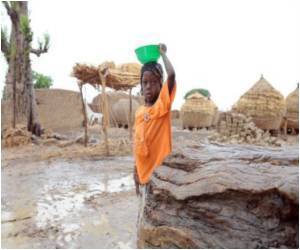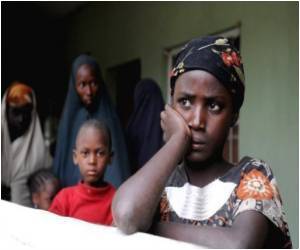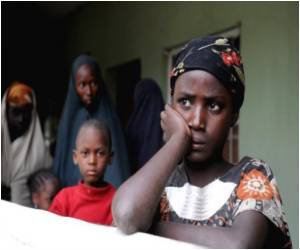
More than 3,000 children live in seven affected villages in an area of high-intensity wildcat gold mining, said Elisabeth Byrs, spokeswoman for the UN Office for the Coordination of Humanitarian Affairs in Geneva.
But locals are reluctant to disclose the poisoning victims for fear authorities will ban their activities.
"It sometimes takes us two weeks to convince the communities to open up because they are scared we are going to stop them from processing ore that fetches them money," said Ian von Lindern of TerraGraphics, a US environmental engineering firm helping to decontaminate some of the villages.
For two weeks recently, Bagega villagers denied any deaths or illnesses among the 1,800 under-fives in the area with a population of 9,000 people, he said.
In fact lead poisoning killed 150 children in Bagega village in six months.
Advertisement
"We fear the government will ban our mining business if we disclose the high mortality and illnesses among our children which will throw us into more economic misery because we rely on gold mining for our livelihood," said Alka Lawalli of Bagega.
Advertisement
A gram of gold which takes barely two hours to extract fetches 3,500 naira (23 dollars), more than half the value of a 50-kilogram (110-pound) bag of millet which takes four months to cultivate, according to local miners.
For more than 20 years, farmers in the mineral-rich northern part of Zamfara state have illicitly mined gold using rudimentary techniques.
They bring home the ore and their wives crush it with hammers before flushing it with water to remove the sand and retain the gold. The residue discarded haphazardly in the open exposes children to inhalation or ingestion of contaminants.
Things went wrong from March this year when the villagers hit ores with extremely high lead concentrations.
Despite villagers' denials, soil tests by TerraGraphics found lead levels in Kirsa village 100 times what is considered tolerable for residential areas.
Kirsa recorded 50 deaths and 20 still births in the past four months, according to MSF which runs clinics in Zamfara.
"The scale of the problem is much worse than we anticipated," Lindern said.
While no adult has died, the demand for herbal aphrodisiacs from men has soared in the last four months as they complain of low libido or impotence, which MSF attributes to lead poisoning.
Only seven villages had been earmarked for decontamination but four more are confirmed to be heavily contaminated.
"The lead pollution and intoxication crisis in Zamfara State is far from over. In fact, we have only seen the tip of the iceberg," the UN said in a report on Tuesday.
However, the Nigerian government chief epidemiologist, Henry Akpan, disputes the death toll, saying the outbreak is under control.
Symptoms of lead poisoning normally build up over long periods as the heavy metal accumulates in the human body, producing abdominal pain, nervous disorders affecting growth and ultimately kidney failure.
Children, especially fast-growing under five-year-olds, are most at risk.
"Initially, we were talking of 18,000 affected people in seven villages ...but now no one can tell you how many villages there are to decontaminate," MSF?s Ahmad said.
Source-AFP









